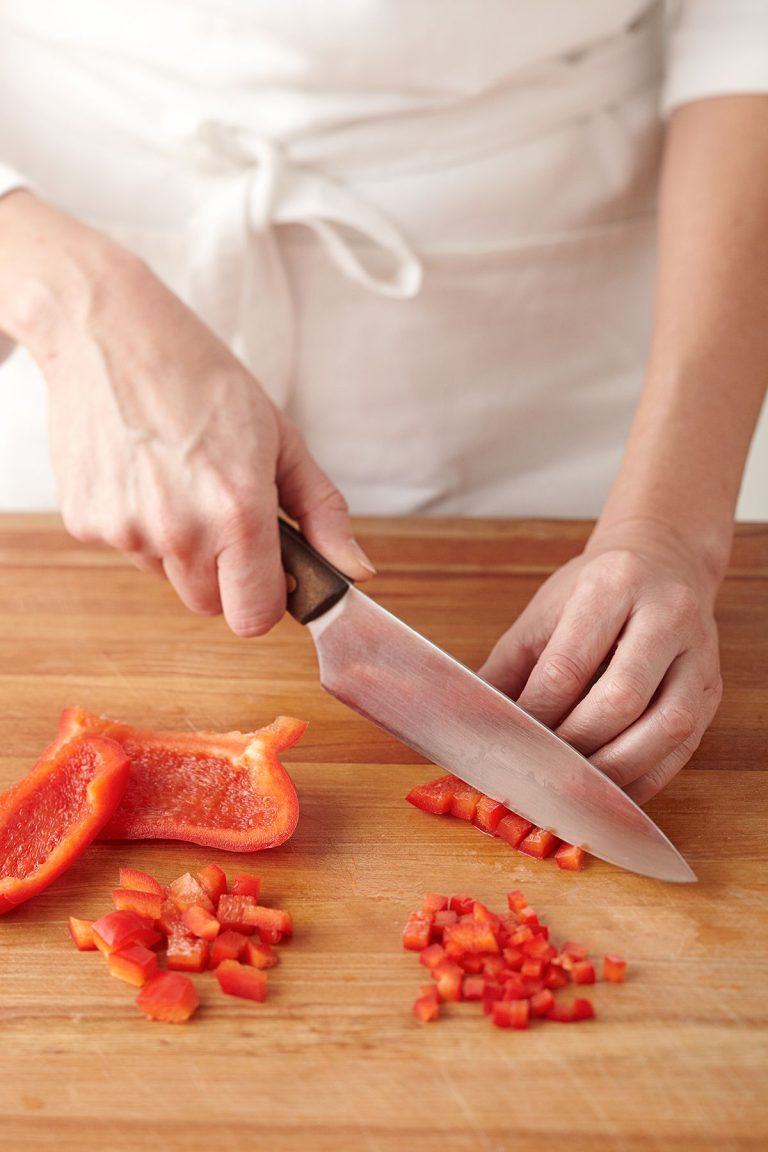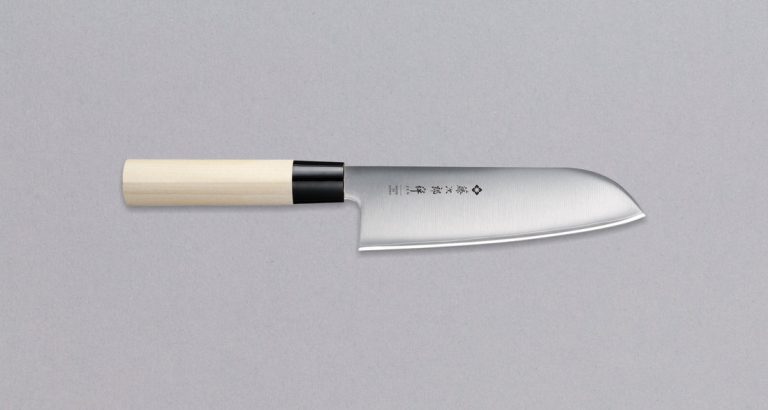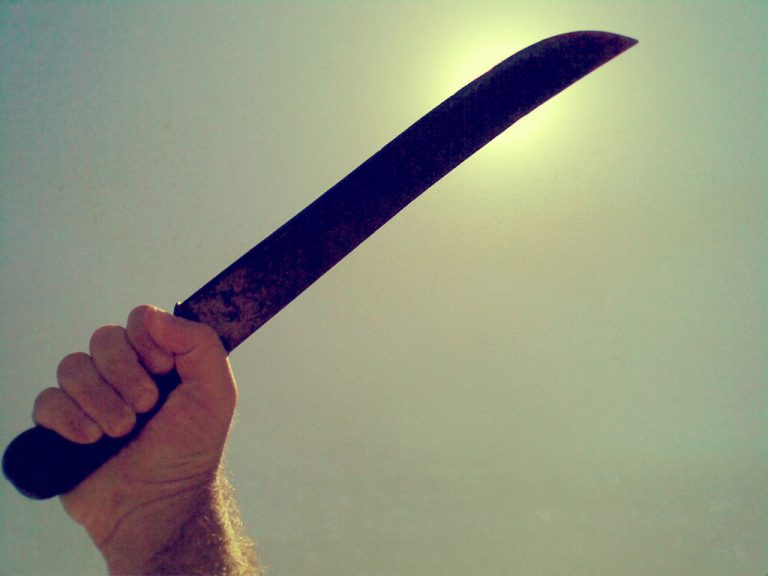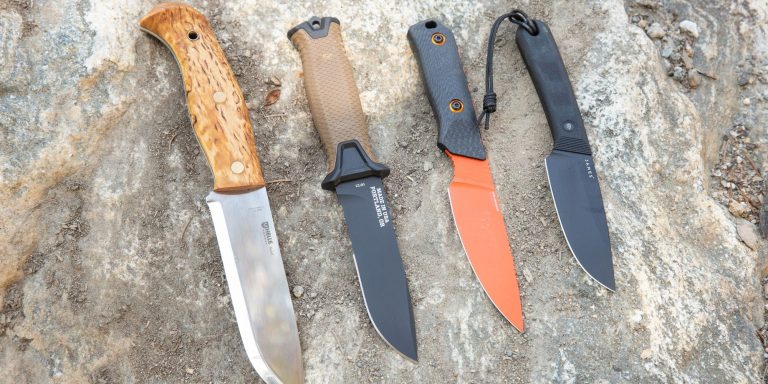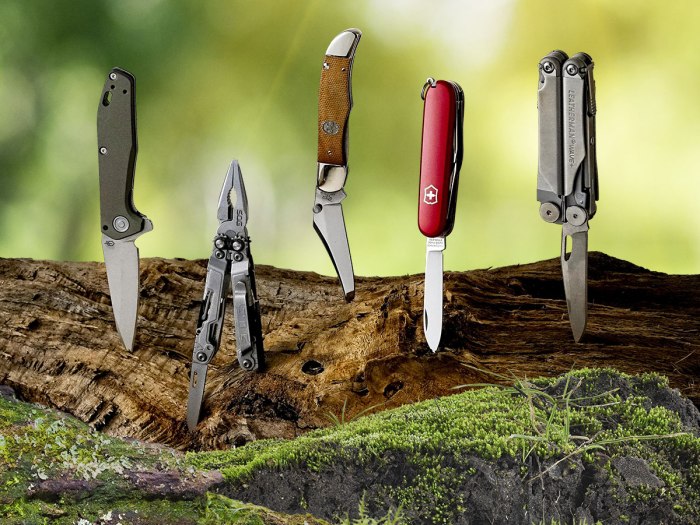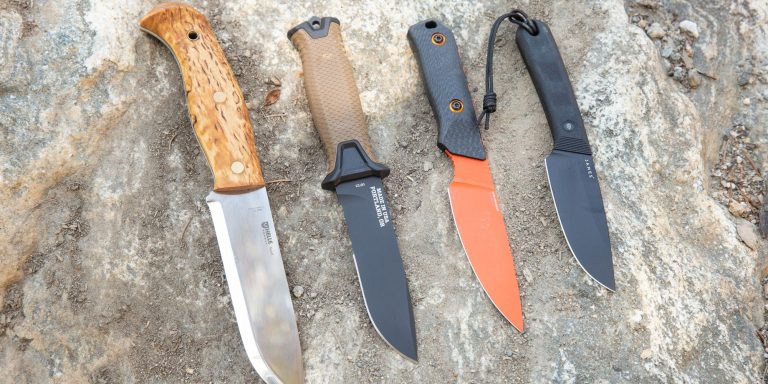Expert Tips for Knife Maintenance
Expert tips for knife maintenance include regular sharpening and honing to ensure optimal cutting performance and prevention of accidents. Keeping your knives clean and dry, storing them properly, and avoiding unnecessary stress on the blade are also essential for maintaining their longevity and functionality.
When it comes to knife maintenance, following expert tips is crucial. Regular sharpening and honing keep your knives in top shape and reduce the risk of accidents. In addition, keeping your knives clean and dry, storing them properly, and avoiding unnecessary stress on the blade are key for their longevity and optimal cutting performance.
With these expert tips, you can ensure that your knives remain sharp, safe, and efficient for a long time.
Essential Tools For Knife Maintenance
Maintaining your knives is essential for their longevity and performance. To keep your knives in top shape, you’ll need the right tools. When it comes to **sharpening stones**, choosing the right grit is crucial. Coarse stones are suitable for repairing damaged edges and shaping new blades, while fine stones are ideal for refining and honing sharpness. **Honing rods** are another essential tool to maintain the sharpness of your knives. They can realign the blade’s edge, ensuring optimal cutting performance.
In addition to the tools, proper cleaning materials are necessary for maintaining blade hygiene. Soft cloths or brushes, mild detergents, and warm water are recommended to remove dirt, debris, and stains from your knives. It’s important to avoid harsh abrasives and excessive moisture, as they can damage the blade’s finish or lead to corrosion.
Regular Knife Cleaning Practices
Regular knife cleaning practices are essential to ensure the longevity and optimal performance of your knives. Safely disassembling and cleaning all knife parts is a crucial step. Take apart the knife, clean the handle, and remove any dirt or debris from the knife’s pivot area. It is also important to pay attention to the blade, focusing on removing rust and stubborn stains effectively. Using a mild abrasive, such as baking soda or lemon juice, can be helpful. Make sure to thoroughly dry the blade to prevent any rust formation. Additionally, oiling the blade will help maintain its sharpness and prevent corrosion. Apply a couple of drops of oil to the blade and wipe off any excess. These simple maintenance practices will ensure that your knives stay in top-notch condition for a long time.
Sharpening Techniques For Optimal Performance
Sharp knives are essential for optimal performance in the kitchen. To ensure your knives are always sharp, understanding different sharpening angles for various knife types is crucial. The angle at which a knife is sharpened affects its cutting ability and durability.
When using sharpening stones or systems, follow this step-by-step guide:
- Choose the appropriate grit for your knife’s condition.
- Apply water or honing oil to the stone’s surface.
- Hold the knife at the correct angle, typically between 15 to 20 degrees, against the stone.
- Move the blade across the stone in a sweeping motion, maintaining consistent pressure.
- Repeat on the other side until the desired sharpness is achieved.
- Strop the knife on a leather or canvas surface to refine the edge.
Understanding the difference between honing and sharpening is also important. Honing realigns the knife’s edge, while sharpening removes metal to create a new edge. Use honing regularly to maintain the sharpness and longevity of your knife, and sharpen only when necessary.
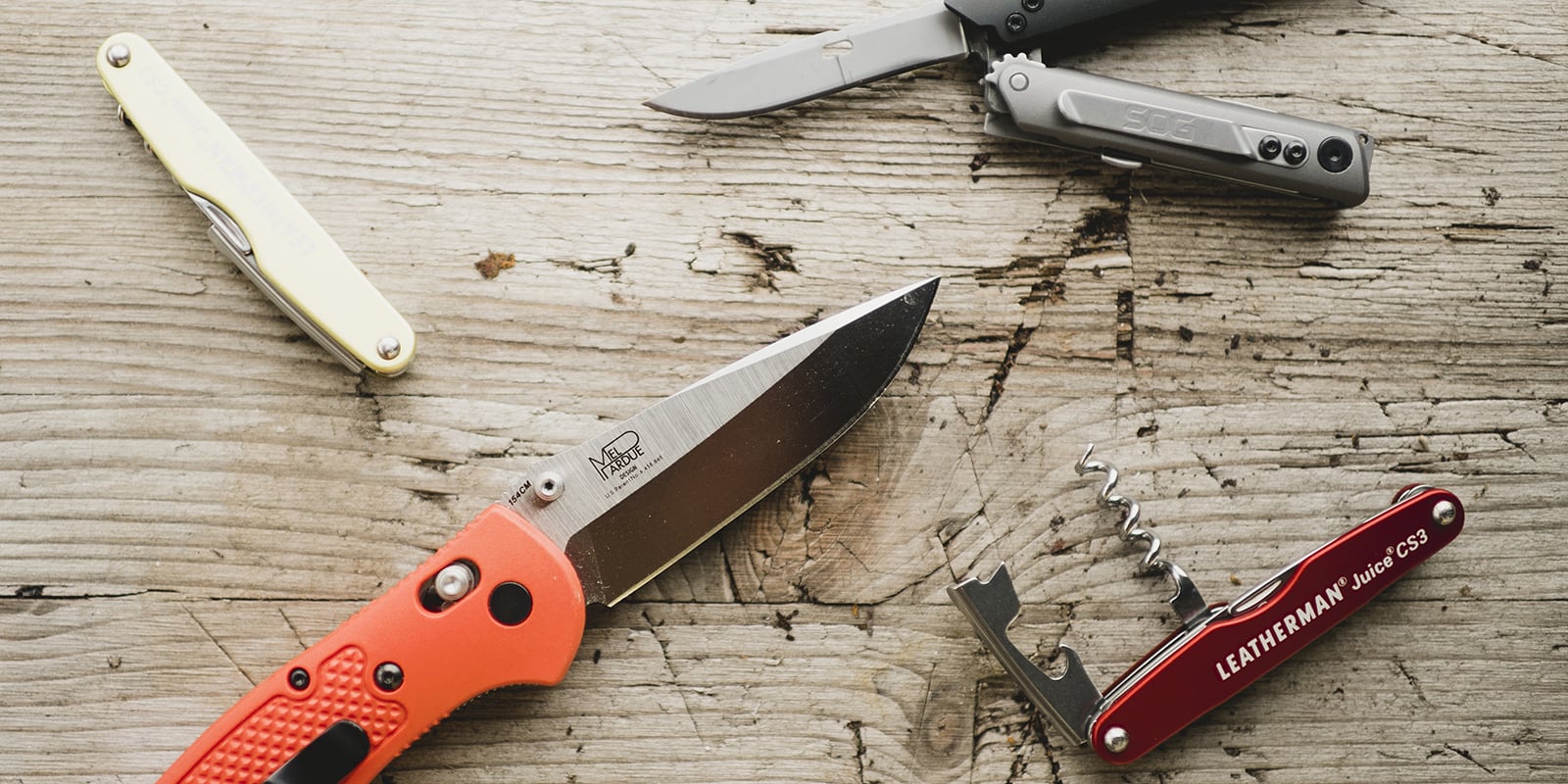
Credit: www.rei.com
Proper Storage And Handling Of Knives
Proper storage and handling of knives are essential for their longevity and maximum performance. Storing knives in a secure and dry location is of utmost importance to prevent any potential damage. It is recommended to utilize blade protectors and covers to shield the blades from scratches, nicks, or any other physical harm that can occur during storage. By using these protective covers, the sharpness and quality of the knives can be preserved over time.
Moreover, safe and correct knife handling is crucial to minimize accidents. Always hold the knife firmly and securely, maintaining a balanced grip to ensure control. Be mindful of your fingers and keep them away from the blade while cutting. Additionally, it’s important to use the appropriate knife for specific tasks, as using the wrong knife can result in damage to both the knife and the food being prepared.
Tips For Maintaining Knife Handles
When it comes to maintaining knife handles, it’s important to understand the specific care requirements based on the different handle materials. Wooden handles should be cleaned with a mild soap and warm water, then dried immediately to prevent moisture damage. To preserve the wood, it’s recommended to apply mineral oil regularly. Plastic handles are relatively easy to clean and can be washed with soap and water. However, harsh chemicals should be avoided as they can degrade the plastic material. Lastly, metal handles can be cleaned with soap and water, but extra care must be taken to ensure they are completely dry to prevent rust. If you encounter a loose handle or damaged grip, it’s best to address it promptly. For wooden handles, tightening the screws or using adhesive may be necessary. Plastic and metal handles may require replacement if they cannot be repaired. By following these tips, you can effectively maintain your knife handles and prolong their lifespan.
Maintaining Folding Knives
Maintaining folding knives involves proper maintenance and care to ensure their longevity and performance. Lubricating hinges and pivot points is crucial for a smooth folding action. Regularly applying a high-quality lubricant helps reduce friction and prevents wear and tear. Additionally, tightening or adjusting screws ensures a secure and stable blade, preventing any accidental injuries. It is essential to periodically inspect the locking mechanisms of the folding knife to ensure reliable performance and safe operation. By checking for any signs of wear or damage, you can address any potential issues promptly. Overall, proper knife maintenance, such as lubrication, tightening screws, and inspecting locking mechanisms, is essential to keep your folding knives in optimal condition and extend their lifespan.
Special Care For Serrated Knives
Proper maintenance is key to ensuring the longevity and performance of your serrated knives. Sharpening serrated blades requires special attention and techniques to maintain their effectiveness.
The first step is to meticulously clean the serrations and remove any debris that may have accumulated. This can be done by using a small brush or toothpick to gently dislodge any particles. Remember to proceed with caution to avoid potential injuries.
When it comes to maintaining the overall integrity of the serrated edges, it is important to avoid using traditional knife sharpeners. These sharpeners are designed for straight blades and can ruin the serrations.
Instead, invest in a serrated knife sharpener specifically designed to cater to the unique needs of serrated blades. These sharpeners typically feature a groove or a rounded edge that matches the curvature of the serrations, allowing for precise sharpening.
Regular maintenance of serrated knives is vital to ensure their optimal performance. By following these techniques, you can effectively sharpen and care for your serrated knives, prolonging their lifespan and maintaining their cutting edge.
Prevention And Maintenance Of Blade Rust
Rust and corrosion can ruin the performance and appearance of your knife. It’s crucial to understand the causes and implement proper prevention techniques. **Regular cleaning and drying** can help prevent moisture buildup that can lead to rust formation. **Applying a thin layer of oil** after cleaning can also provide a protective barrier against oxidation. If rust appears on the blade, here are a few methods to remove it: **using a gentle abrasive**, such as fine steel wool or a soft cloth with some baking soda, **applying vinegar** to the affected area and scrubbing lightly, or **using a rust remover solution**. Remember to **dry the blade thoroughly** after removing rust to prevent further oxidation. By following these maintenance practices, you can ensure your knife stays in top condition and extends its lifespan.
Professional Knife Maintenance Services And Resources
Expert Tips for Knife Maintenance
When it comes to maintaining your knives, professional services and resources can be valuable. Professional knife maintenance services offer benefits such as expert sharpening techniques and ensuring the longevity of your knives. They utilize top-quality sharpening equipment and have the knowledge to restore knives to their optimal condition. However, there are drawbacks to consider. Professional services can be costly, and there may be a wait time for your knives to be returned.
On the other hand, if you prefer a more hands-on approach, there are online resources and tutorials available for DIY knife maintenance. These resources provide step-by-step instructions and guidance on how to properly sharpen and care for your knives. Additionally, you can explore local knife maintenance workshops and classes. These workshops offer a hands-on learning experience and the opportunity to interact with experts in person.
Troubleshooting And Common Knife Maintenance Issues
Knife maintenance is crucial for keeping your blades in top shape and ensuring their longevity. However, like any tool, knives can experience various issues that require troubleshooting and maintenance. One common problem is blade wobbling or misalignment, which can affect the knife’s performance and safety. This issue can typically be resolved by tightening the pivot screw or adjusting the blade tension. Another frequent problem is handle issues, such as cracks or looseness. In such cases, it’s best to remove the handle scales and repair or replace them as needed. Regularly inspecting your knives for these common problems and promptly addressing them can help maintain the functionality and appearance of your blades.
Conclusion
To keep your knives in top condition, regular maintenance is essential. Following the expert tips provided in this blog post will help you extend the lifespan of your knives and ensure optimal performance. By cleaning your knives carefully after each use, using the correct cutting surface, and sharpening them regularly, you can avoid dull blades and reduce the risk of accidents.
Storing your knives properly in a knife block or on a magnetic strip will keep them safe and easily accessible. Remember to handle your knives with care, never using them for improper purposes or putting them in the dishwasher. By implementing these easy knife maintenance practices into your routine, you can enjoy the benefits of sharp, durable knives for years to come.
So, take care of your knives and enhance your culinary experience with well-maintained, razor-sharp tools.

